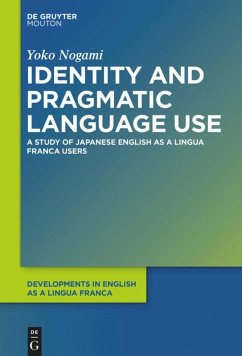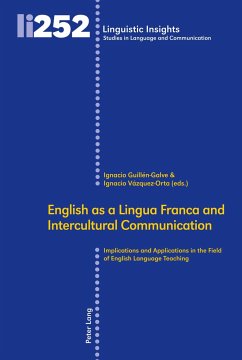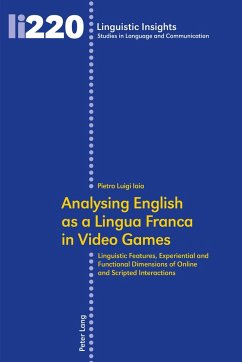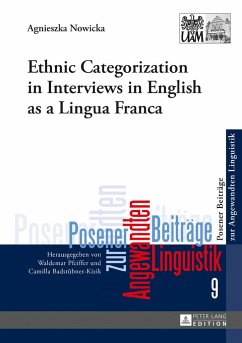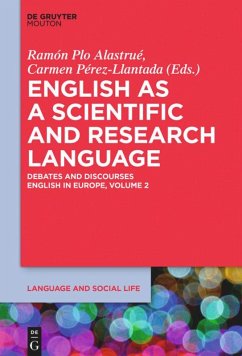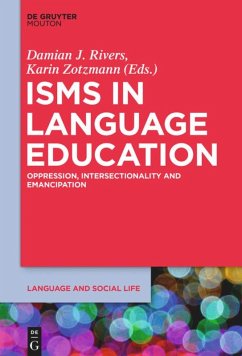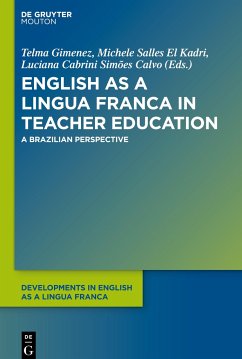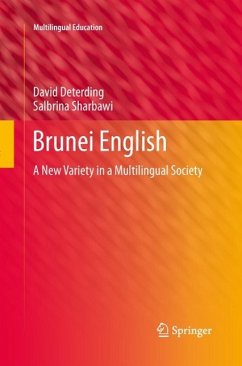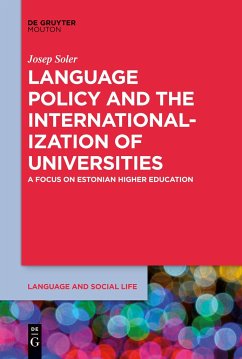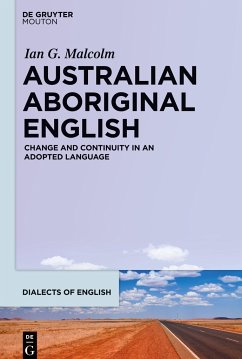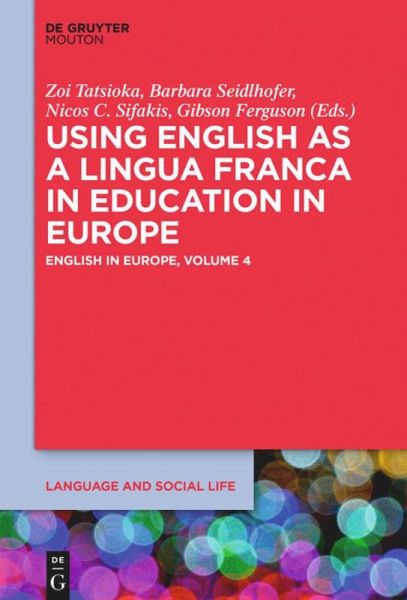
Using English as a Lingua Franca in Education in Europe
English in Europe: Volume 4
Herausgegeben: Tatsioka, Zoi; Seidlhofer, Barbara; Sifakis, Nicos; Ferguson, Gibson
Versandkostenfrei!
Versandfertig in 6-10 Tagen
139,95 €
inkl. MwSt.

PAYBACK Punkte
0 °P sammeln!
This volume examines the role of English as a Lingua Franca (ELF) in education in Europe. Following the implementation of the Bologna process, English has assumed a central role in European education offering institutions the opportunity to cater to the needs of an internationalized student body and increase their competitiveness. On the other hand, the increased use of ELF has become an issue of concern, often perceived as a threat to other languages, tilting the scale towards linguistic inequality and stressing the urgent need for the development of new language policies. Both aspects of ELF...
This volume examines the role of English as a Lingua Franca (ELF) in education in Europe. Following the implementation of the Bologna process, English has assumed a central role in European education offering institutions the opportunity to cater to the needs of an internationalized student body and increase their competitiveness. On the other hand, the increased use of ELF has become an issue of concern, often perceived as a threat to other languages, tilting the scale towards linguistic inequality and stressing the urgent need for the development of new language policies. Both aspects of ELF are at the center of discussion in the proposed volume, which consists of a variety of papers examining ELF in different parts of Europe (Eastern, Central and Western) and different levels of education. The volume makes a substantial contribution to the lively and controversial debate about what is recognized as a central topical concern of language education policy in Europe and beyond.



